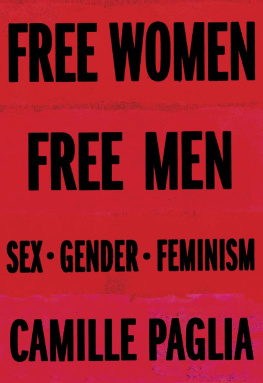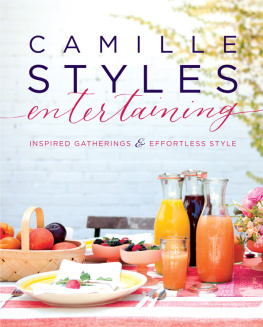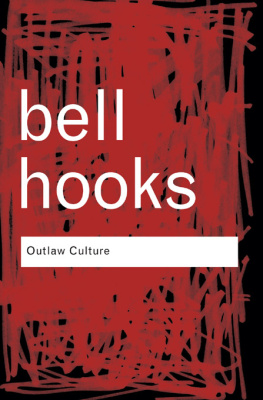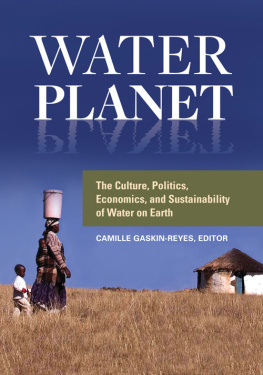Camille Paglia - Sex, Art, and American Culture: Essays
Here you can read online Camille Paglia - Sex, Art, and American Culture: Essays full text of the book (entire story) in english for free. Download pdf and epub, get meaning, cover and reviews about this ebook. year: 1992, publisher: Vintage, genre: Romance novel. Description of the work, (preface) as well as reviews are available. Best literature library LitArk.com created for fans of good reading and offers a wide selection of genres:
Romance novel
Science fiction
Adventure
Detective
Science
History
Home and family
Prose
Art
Politics
Computer
Non-fiction
Religion
Business
Children
Humor
Choose a favorite category and find really read worthwhile books. Enjoy immersion in the world of imagination, feel the emotions of the characters or learn something new for yourself, make an fascinating discovery.

- Book:Sex, Art, and American Culture: Essays
- Author:
- Publisher:Vintage
- Genre:
- Year:1992
- Rating:3 / 5
- Favourites:Add to favourites
- Your mark:
- 60
- 1
- 2
- 3
- 4
- 5
Sex, Art, and American Culture: Essays: summary, description and annotation
We offer to read an annotation, description, summary or preface (depends on what the author of the book "Sex, Art, and American Culture: Essays" wrote himself). If you haven't found the necessary information about the book — write in the comments, we will try to find it.
Sex, Art, and American Culture: Essays — read online for free the complete book (whole text) full work
Below is the text of the book, divided by pages. System saving the place of the last page read, allows you to conveniently read the book "Sex, Art, and American Culture: Essays" online for free, without having to search again every time where you left off. Put a bookmark, and you can go to the page where you finished reading at any time.
Font size:
Interval:
Bookmark:
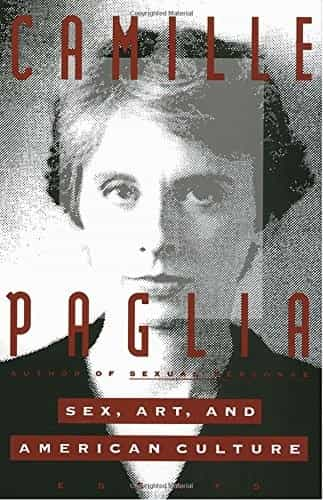
CAMILLE PAGLIA
SEX, ART, AND AMERICAN CULTURE
Camille Paglia is Professor of Humanities at the University of the Arts in Philadelphia. She is the author of Sexual Personae: Art and Decadence from Nefertiti to Emily Dickinson, Vamps & Tramps, and the forthcoming Break, Blow, Burn.
A Vintage Original, September 1992
FIRST EDITION
Copyright 1992 by Camille Paglia
All rights reserved under International and Pan-American Copyright Conventions. Published in the United States by Vintage Books, a division of Random House, Inc., New York, and simultaneously in Canada by Random House of Canada Limited, Toronto.
Library of Congress Cataloging-in-Publication Data
Paglia, Camille, 1947
Sex, art, and American culture : essays / Camille Paglia. 1st ed.
p. cm.
A Vintage original.
eISBN: 978-0-307-76555-0
1. United StatesPopular cultureHistory20th century.
I. Title.
E169.12.P33 1992
306.40973dc20 91-50933
constitute an extension of this copyright page.
v3.1
A Response to Rochelle Gurstein
Lucy Hughes-Halletts
Cleopatra: Histories, Dreams and Distortions
Samuel Wilson Fussells
Muscle: Confessions of an Unlikely Bodybuilder
Wendy Lessers
His Other Half: Men Looking at Women Through Art
Suzanne Gordons
Prisoners of Mens Dreams
Richard Schickels
Brando: A Life in Our Times
Marjorie Garbers
Vested Interests: Cross-Dressing and Cultural Anxiety
The essays in this collection are united by common themes. I want to rethink American cultural history in order to clarify the heritage of my generation of the Sixties, which heroically broke through Fifties conformism but which failed in many ways to harness or sustain its own energies.
Popular culture is my passion. It created Sixties imagination. I define pop culture as an eruption of the never-defeated paganism of the West. Its brazen aggression and pornographic sexuality are at odds with current feminism, whose public proponents are in a reactionary phase of hysterical moralism and prudery, like that of the Temperance movement a century ago. We need a new kind of feminism, one that stresses personal responsibility and is open to art and sex in all their dark, unconsoling mysteries. The feminist of the fin de sicle will be bawdy, streetwise, and on-the-spot confrontational, in the prankish Sixties way.
My essays often address the impasse in contemporary politics between liberal and conservative, a polarity that I contend lost its meaning after the Sixties. There should be an examination of the way Sixties innovators were openly hostile to the establishment liberals of the time. In todays impoverished dialogue, critiques of liberalism are often naively labeled conservative, as if twenty-five hundred years of Western intellectual history presented no other alternatives. My thinking tends to be libertarian. That is, I oppose intrusions of the state into the private realmas in abortion, sodomy, prostitution, pornography, drug use, or suicide, all of which I would strongly defend as matters of free choice in a representative democracy. Similarly, I oppose the meddling of campus grievance committees in the issue of date rape. We should teach general ethics to both men and women, but sexual relationships themselves must not be policed. Sex, like the city streets, would be risk-free only in a totalitarian regime.
We need a new point of view that would combine the inspiring progressive principles and global consciousness of the Sixties with the hard political lessons of the Seventies and Eighties, sobering decades of rational reaction against the arrogant excesses of my generation, who thought we could change the world overnight. In other words, we need a fusion of idealism and realism. Social justice and compassion are compatible with an intelligent respect for private enterprise and law and order. But first, history and economics must be directly studied, without the posturing and simplistic clichs that masquerade as political thinking these days among liberals in and out of academe. I sometimes call my new system Italian pagan Catholicism, but it could more accurately be called pragmatic liberalism, with roots in Enlightenment political philosophy. It is a synthesis of the enduring dual elements in our culture, pagan and Judeo-Christian, Romantic and Classic.
One of my central concerns is the reform of education, which has degenerated since my generation made relevance a quickie standard of judgment. Education has become a prisoner of contemporaneity. It is the great past, not the dizzy present, that is the best door to the future. While I often felt stultified and imprisoned by my elementary and high-school instruction (I was always plotting to get out of the classroom and roam the halls), I now recognize that it was the basis of my present skills as a thinker, researcher, and writer. The rigorous, no-nonsense American public schools that provided free education for a hundred years to the immigrants, including my mother, have been allowed to degenerate.
Contemporaneity is an even worse plague upon the best higher education. The most interesting and daring minds of my generation did not, as a rule, go on to graduate school or succeed in the academic system. Hence our major universities are now stuck with an army of pedestrian, toadying careerists, Fifties types who wave around Sixties banners to conceal their record of ruthless, beaverlike tunneling to the top. That the New Criticism was, in its exclusion of history and psychoanalysis, insupportable was perfectly obvious in the Sixties. But there was an American way out of its dilemma. I found it in Allen Ginsberg, Norman O. Brown, Leslie Fiedler, and Harold Bloom. We did not need French post-structuralism, whose pedantic jargon, clumsy convolutions, and prissy abstractions have spread throughout academe and the arts and are now blighting the most promising minds of the next generation. This is a major crisis if there ever was one, and every sensible person must help bring it to an end.
A serious problem in America is the gap between academe and the mass media, which is our culture. Professors of humanities, with all their leftist fantasies, have little direct knowledge of American life and no impact whatever on public policy. Academic commentary on popular culture is either ghettoized as lackluster communications, tarted up with semiotics, or loaded down with grim, quasi-Marxist, Frankfurt School censoriousness: the pitifully witless masses are always being brainwashed by money-grubbing capitalist pigs. But mass media is completely, even servilely commercial. It is a mirror of the popular mind. All the P.R. in the world cannot make a hit movie or sitcom. The people vote with ratings and dollars. Academic Marxists, with their elitist sense of superiority to popular taste, are the biggest snobs in America.
The American intellectual should mediate between academe and media, the past and the present. Language should be lucid, concrete, direct, with the brash candor of the American people and the brusque, can-do rhythms of American life. I was always attracted to Thirties voicesto the Algonquin wits, like Dorothy Parker, with her caustic one-liners, and to pugnacious literary journalists like Edmund Wilson and Mary McCarthy. Ever since the triumph of television and rock music (both of which I worship), American intellectual life has been in the doldrums. It needs to be jump-started with the energy of mass media. Academics have got to get out of the Parisian paper matchbox and back into the cultural mainstream, the American roaring rapids, with their daily excitement and bracing vulgarity.
Font size:
Interval:
Bookmark:
Similar books «Sex, Art, and American Culture: Essays»
Look at similar books to Sex, Art, and American Culture: Essays. We have selected literature similar in name and meaning in the hope of providing readers with more options to find new, interesting, not yet read works.
Discussion, reviews of the book Sex, Art, and American Culture: Essays and just readers' own opinions. Leave your comments, write what you think about the work, its meaning or the main characters. Specify what exactly you liked and what you didn't like, and why you think so.

